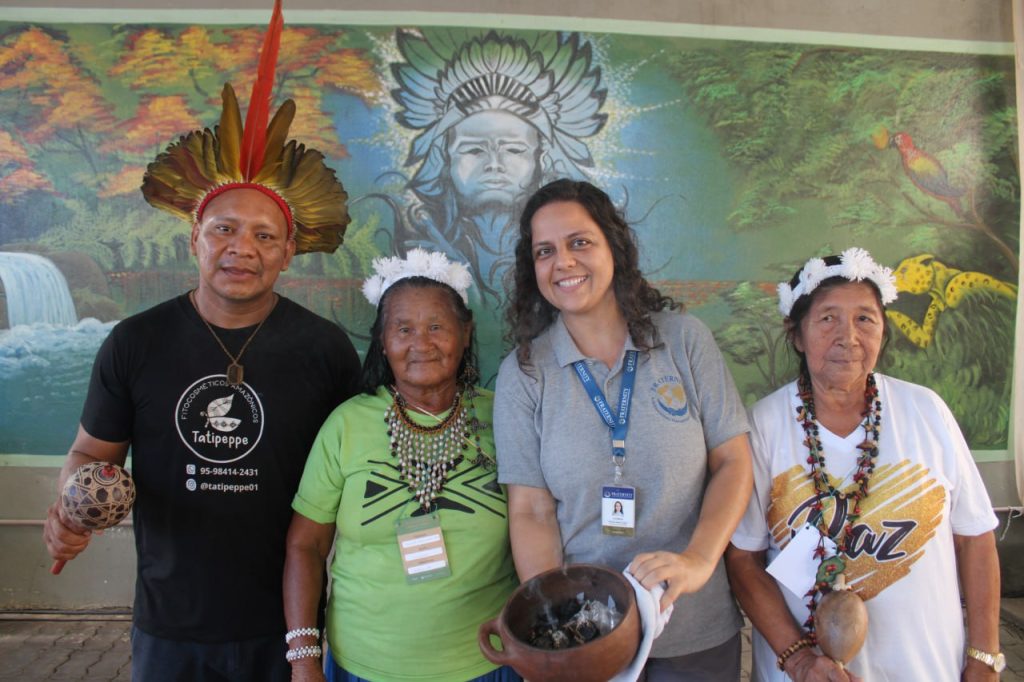On October 1, 1991, when UN Resolution 46/91 was adopted, the United Nations Principles were adopted in defense of the human rights of older persons, which include independence, participation, care, personal fulfillment and dignity. Today, 33 years later, the Fraternity – International Humanitarian Missions (FIHM) is highlighting the importance of valuing the elderly, especially in indigenous cultures.
The rich indigenous cultural diversity, manifested in language, dress, traditions and cuisine, with hundreds of different ways of understanding and dealing with life, the environment and the sacred, comes from the different ways in which the original peoples organize themselves in different communities. In this context, the elders are references for all descendants and are responsible for keeping alive the cultural identity within each ethnic group, in other words, everything that differentiates them from other ethnic groups and makes them unique peoples.
Yumelis Tovar, a young member of the Warao people, reminded everyone on this day that “…they are the true practitioners of ancestral culture and tradition. We must always support them, since at this age they need our support and accompaniment.”
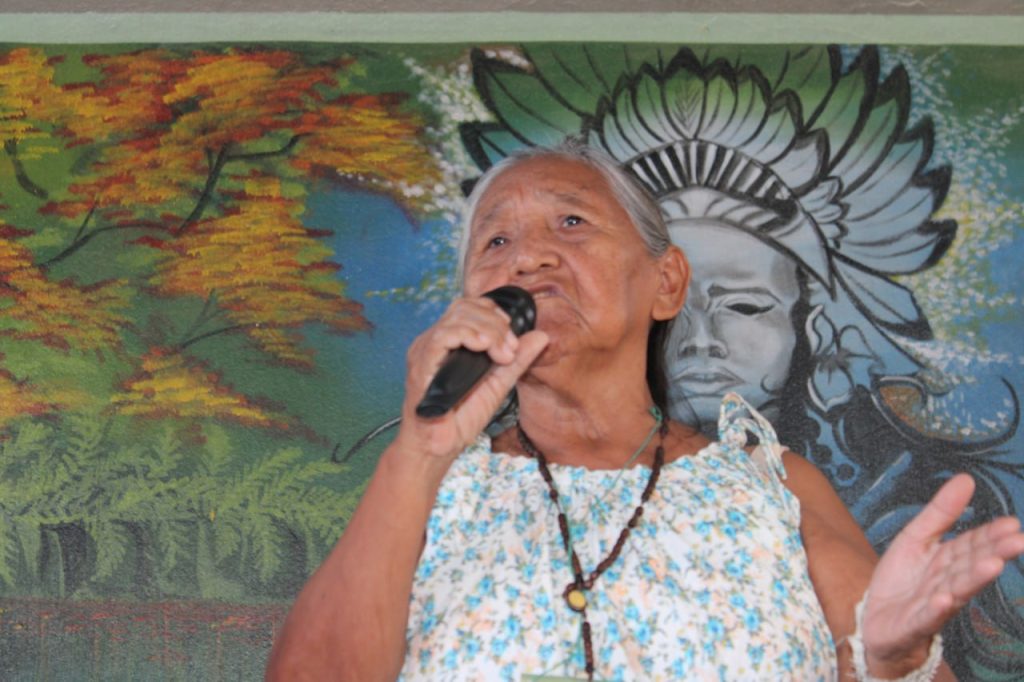
Seeking the cultural perpetuity of indigenous peoples through the elders at the Roraima Humanitarian Mission
In this perspective of fostering the cultural perpetuity of the indigenous peoples, the Fraternity – Humanitarian Missions (FIHM), through the Roraima Humanitarian Mission, has carried out essential actions for the preservation of the identity of the indigenous peoples with workshops that favor the experience of traditional practices in the Indigenous Cultural and Training Centre (CCFI).
The workshops range from the practice of traditional medicine, clay pot production, handicrafts, the creation of the Cultural Expression Space project, to storytelling by the elders, who are the guardians of the oldest stories, legends and traditions, encouraging the exchange of knowledge between elders of the same peoples and between elders of different peoples.
Yumelis Tovar shared that she learned a lot from her leader of the Warao community, where she lived before moving to Brazil, about respect and care for older people and the importance of listening to the advice they offer to younger people. She sends a message to young people, saying: “Let us young people take the advice of the elders for our lives, to improve our future. If we practice the ancestral knowledge that the elders pass on, I believe we won’t lose the cultural teachings in the future. Most of us are living in another city, in another country, and we often try to find out what our cultural practice is.”
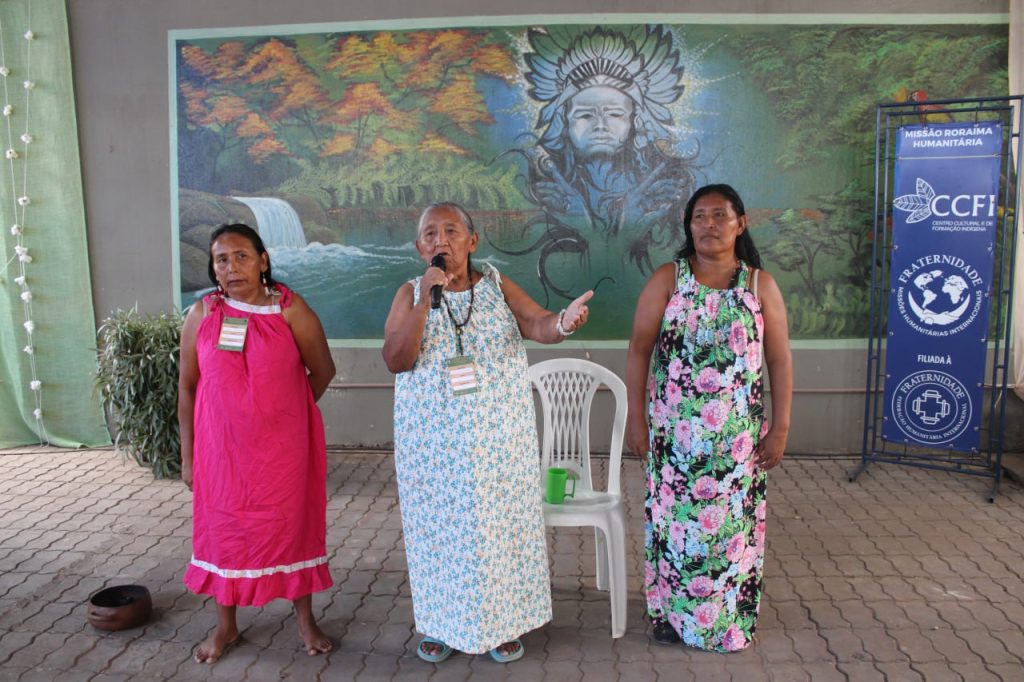
Space for Cultural Expression (knowledge of the language)
The “Space for Cultural Expression” project by Alberto Conejero, a migrant teacher from the Eñepa people, aims to pass on ancestral knowledge of their culture, literacy and literacy in Panare, the original language of that people, as well as in Spanish and Portuguese. The project, developed at the Indigenous Cultural and Training Centre (CCFI), has already benefited many of the people’s children.
The project aims to help ensure that original languages, such as Panare, can be internalized by the younger members of the same ethnic group and thus guarantee the continuity of the language throughout the generations.
According to the UN, every two weeks a language ceases to exist and with it the local cultural and intellectual heritage. At least 43% of the approximately 6,000 languages currently spoken in the world could disappear.
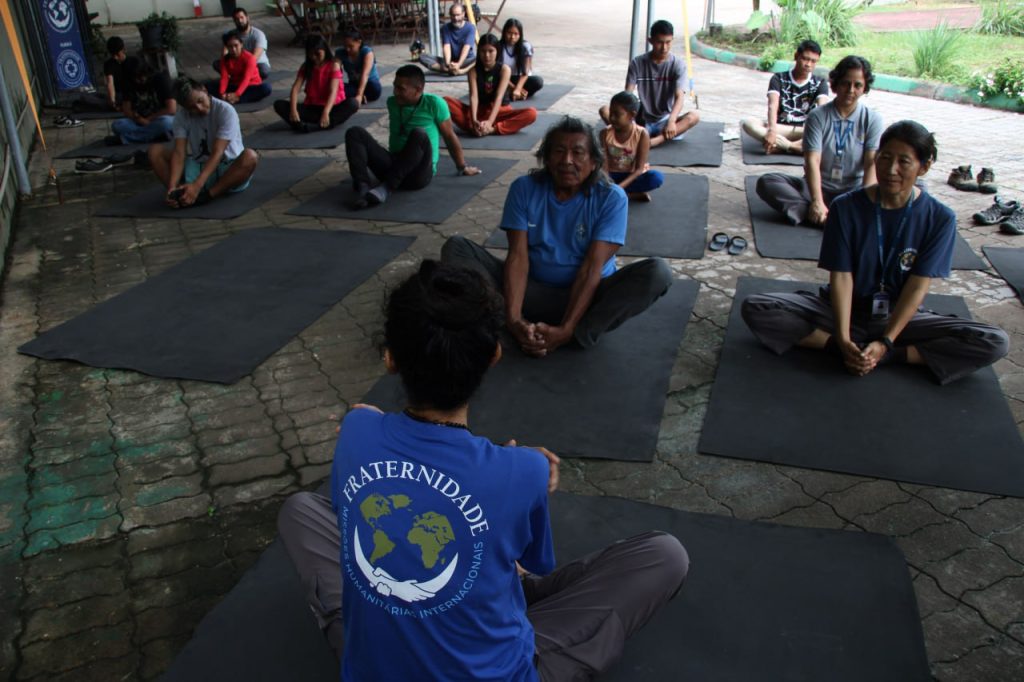
Native languages are the most threatened with extinction. From the Tupi-Guarani linguistic family, Warázu is just one of dozens of languages in danger of extinction. According to UNESCO’s Atlas of Endangered Languages, 190 languages are at risk of extinction in Brazil alone.
There are currently 515 indigenous people, according to the Special Secretary for Indigenous Health, who speak predominantly Portuguese and are trying to recover their language with the help of indigenous elders and university students. According to linguist Corbera, from Unicamp’s Institute of Language Studies. According to him, it is often not possible to recover the whole language, sometimes only the lexicon, the set of words and expressions that make up a language.
Traditional indigenous medicine practices passed on to younger people
Regarding the medicinal plants extracted from the local flora, which are essential for traditional medicine and subsistence, Rosa Cadete, a Wapixana elder living in Boa Vista, Roraima – Brazil, emphasizes that “knowledge of the laws of nature, caring for the rivers and forests, which are important for our survival, as well as the traditional medicines we make for our people, which are taken from nature with great respect, all of this is important for me to pass on to the younger generations.”
Although she sees it as a challenge for traditional communities to often deal with young people’s lack of interest in learning ancestral knowledge, Mrs. Rosa feels that the workshops are an opportunity for young people to learn to value ancestral teachings.
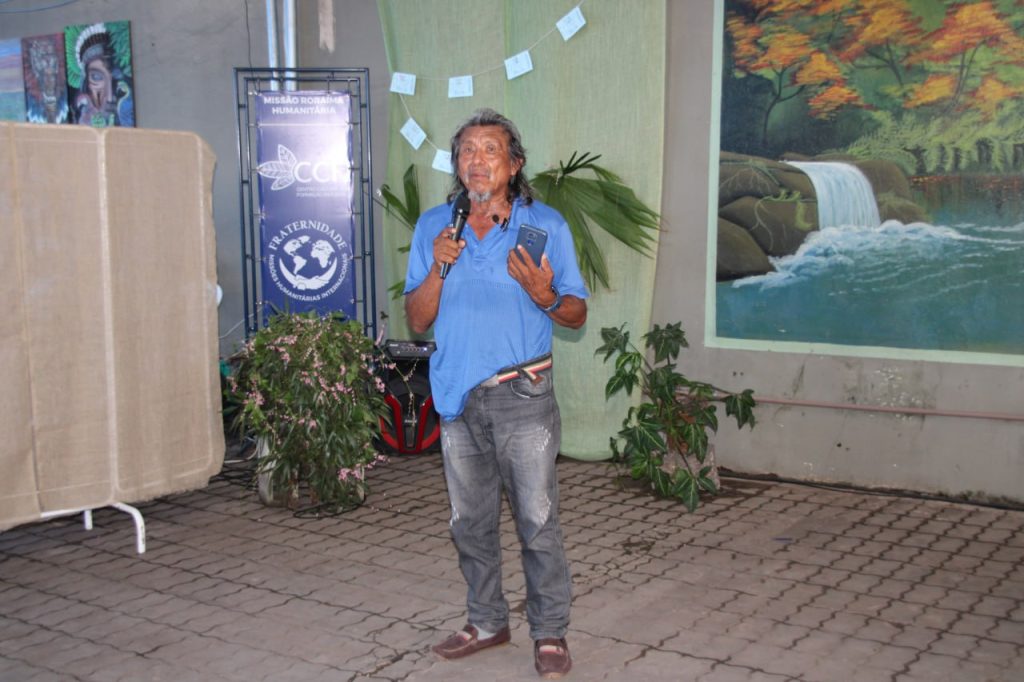
In the context of the exchange of knowledge and learning, Aajhmaná (Tissianie Cardoso), coordinator of the Roraima Humanitarian Mission, pointed out that “when we organize these workshops, on the offer of an artisan or elder who has some knowledge to share, a perfect condition and context arise for people who have traditional knowledge to share it in practice, and when this relationship of knowledge happens, especially with young people, we can see that they are amazed by that knowledge that they had never experienced before.” As an example, she cited the traditional medicine course, which taught the importance of asking the plant’s permission before removing a branch from a tree, which grants or does not grant permission based on the position of the leaf when the branch is removed for medicinal purposes.
“I feel very respected by the appreciation that the community has for me, by doing these workshops… we have to live what we lived with our ancestors, I learned from the knowledge of my grandparents, my parents… and this knowledge I’ve been passing on to the young people. I feel very respected by them, valued because they are also learning to value it,” says Mrs. Rosa.
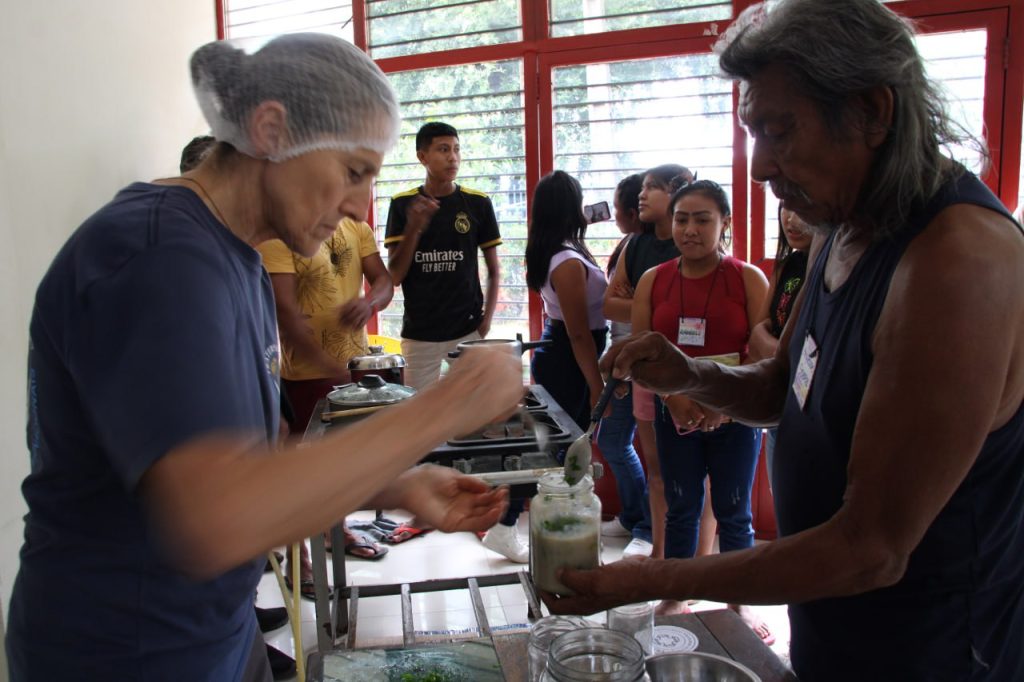
The Roraima Humanitarian Mission fulfills a precious purpose of creating the ideal environment so that the original and traditional identity is not lost amid the turbulence and challenges experienced by migrant peoples or families who have been displaced from their country of origin and who today find in the Indigenous Cultural and Training Centre a chance to see the truth, that allows them to be who they are, continued through the young people.
“The awareness and appreciation of the International Day of Older Persons is very significant, especially in a humanitarian context, where there are groups with a greater degree of vulnerability, and the elderly are always a niche of this group. And when we talk about indigenous elderly people, they suffer a double layer of vulnerability. It’s very important to bring them into the process. They are the ones who hold the culture, the ancestral knowledge of their people, and there is no one better than the elders to share what they have lived through, their knowledge, language, culture, dance and food with the younger ones. Allowing them to be part of this is very important,” concluded Aajhmaná.
